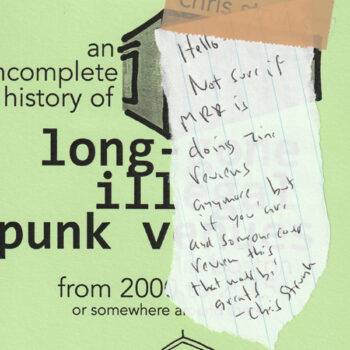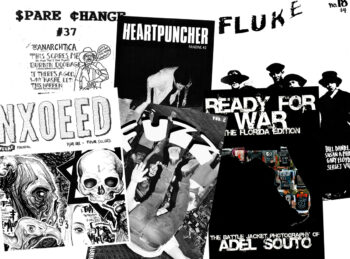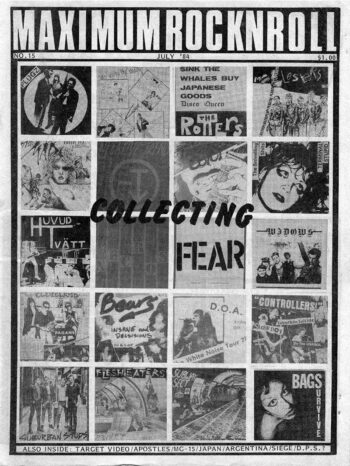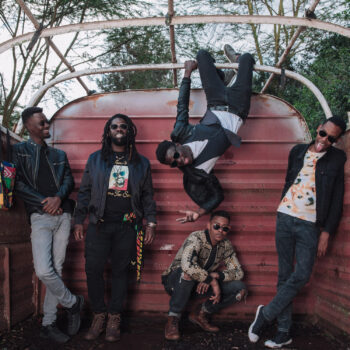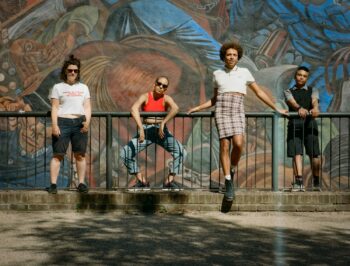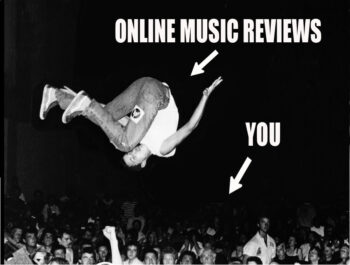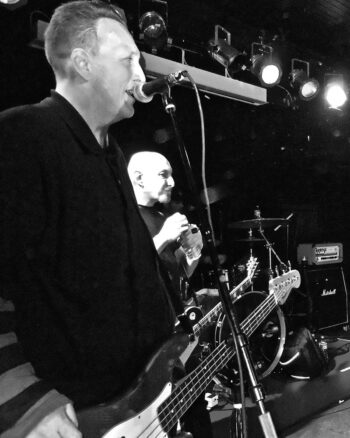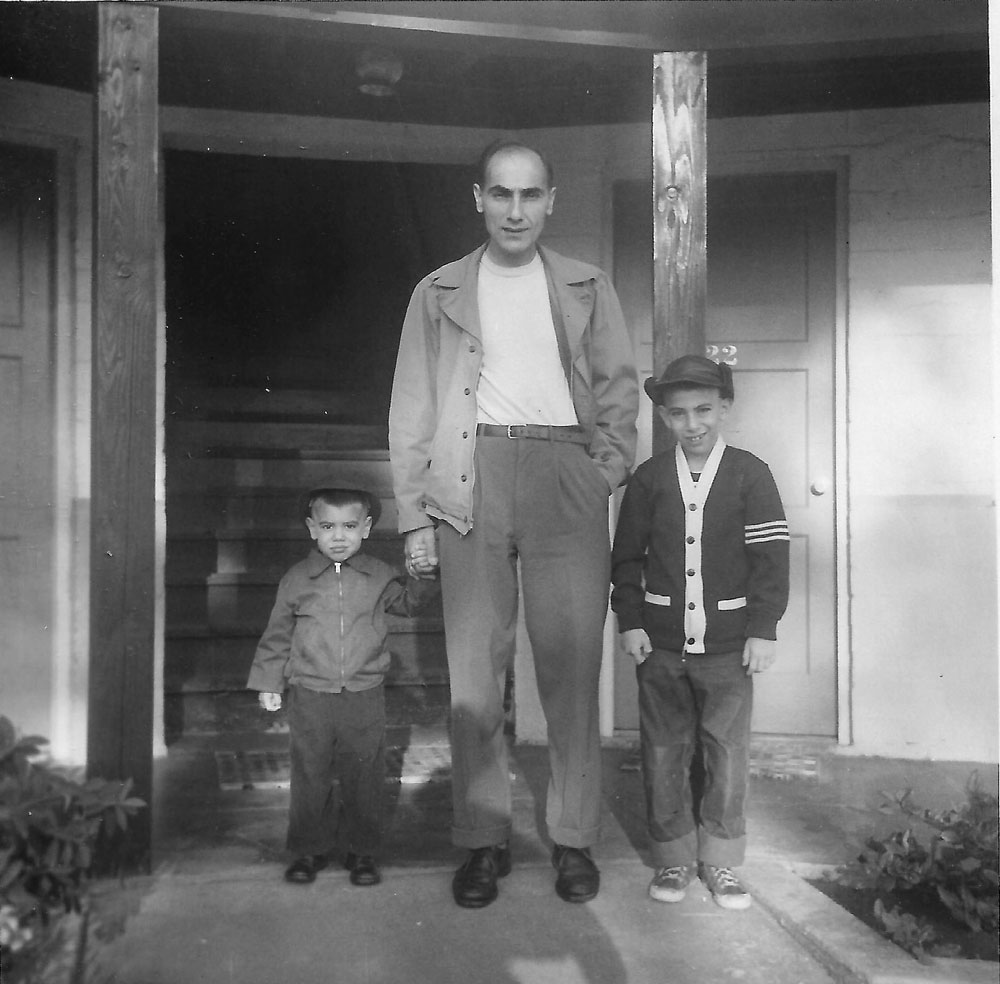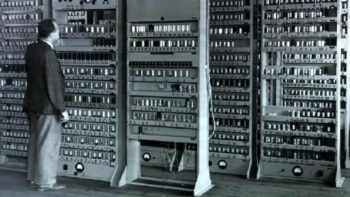Interview: Fred Burns, Director of Basically, Johnny Moped
This month I accidentally caught a screening of a new documentary about ’70s English punks called Basically, Johnny Moped. Johnny Moped might not be quite the “lost band of punk” that the promotional material suggests, but their brief brush with fame and suburban glory story is the perfectly bittersweet subject matter for this great punk doc. Frontman Johnny (who describes himself as “82% disabled”) is just one of the cast of characters in this great documentary, a classic example of punks realising success on their own terms, peppered with often hilarious memories of how the real lives (and overbearing mother-in-laws!) of even the wildest punks can get in the way.
I caught up with filmmaker, collector and punk enthusiast Fred Burns (who also happens to be the son of Captain Sensible of the Damned and Rachel Bor from Dolly Mixture) to find out more about the process of making this killer documentary about an all-but forgotten group of suburban avant-punks and their brief flirtation with the big time.
Hi, Fred! Was there a defining point/story you heard when Johnny Moped became a band you knew you had to make a film about?
No, it’s really strange, I can’t remember ever meeting him or hearing about him when growing up! After watching a football match with my dad (his home team from Croydon—Crystal Palace) and a few of his old mates (most of whom are in the Moped film) we went to the local pub and Johnny was waiting for us. I had no idea who he was but he became the centre of attention, everyone was excited to see him.
That day I heard all sorts of hilarious legends of Moped, and I just had it in the back of my head over the next couple of years that I’d like to ask them one day if it would be ok to do some interviews with the band so I could find out the whole story.
When I started researching the Moped story, I didn’t think the whole story would be big enough for a feature, so set out to either make a short story of one of the legends or make a mid length film like my last two, but it just kept getting bigger and bigger. I ended up with a film about 3 hours long which needed to be cut down rather than the other way around!

How long in total would you say the film took to make?
I’d say 2-3 years in all, nearly everything done myself but with the help of people along the way. Paul Kelly helped me a lot on the project. I had done so much myself and I had a finished cut of the film but I knew there needed to be a structural change to make things work. I was just so close to the whole thing that I couldn’t think of ways to change it. Paul and me went to stay at his sisters place for four days and he ripped apart my edit, moving sections about and made it flow much better. One example is of a bit that he really made work was introducing Johnny’s relationship with Brenda at the garden gig section, instead of having it as a separate section, that made it all flow well where it hadn’t been before.
The film makes particularly great use of still photos cut to music that gives them a jerky cut and paste movement of their own. Was it a challenging process accessing all the amazing photos and footage your documentary is peppered with?
Most of my work over the couple of years making it was tracking down fans, friends and former members of the band and asking if that had anything, any pictures at all of the band. I came across amazing things eventually but took a lot of time. I even asked magazines and local papers to write bits letting people know that I was making the film and after Moped and Croydon related stuff. The bit I was least expecting to find was the footage Donn showed me from the Roxy. That was an amazing find, really great to have that in the film.The footage of Chrissie Hynde with the Mopeds was another amazing find. There were no pictures or anything and then suddenly a guy called Simon Holland told me that he made a film in ’77 and says there’s a few seconds of 16mm film of Chrissie on stage used within it and I was free to use it. That was a long wait trying to get hold of it to see it, and it’s such a short bit of film, but without it my film would have been weaker for sure. There are so many examples of that.

The thread of Johnny and Brenda’s troublesome but enduring relationship that runs through the film makes it feel equal parts working class punk rock love story and music doc. Do you think your personal connection to the subject matter made it easier to bring out the emotions and truth from the folks interviewed, or is this just the craft of a good interviewer?!
Haha, I don’t know about my interviewing skills! Johnny was very open to talk about everything. No one in the band had heard the story of how they got together before and it’s actually quite touching, he obviously really loved her from the moment he saw her and it’s amazing they’re still together today with him looking after her at home. I think the band obviously trusted me to make it as they all knew me as a child and know my dad and everything. It definitely would have been harder to make it ad I not known them.
Finally, could you give me a little bit of background about your other film work and what led you to Basically, Johnny Moped?
I originally wanted to be an animator but that developed into documentary when I was about 16. I really got into watching documentaries in the early noughties. I didn’t really attempt making documentaries until at film school, but I knew by then that that’s all I wanted to do. Everything changed when I saw the films by Alan Berliner really. I just thought they were so perfect and stylised and wanted to do something like that, he also used archive really cleverly and inspired me to start playing with archive too.My first attempt at some sort of documentary as a film called As I Was. Luckily my dad had a friend who came over with a camera when we were kids. When we were older my dad got a video camera too, I had loads of videos and started telling funny anecdotes of things I could remember about growing up, using all the home movies to visualise them. My final project at university was Forget Cassettes? which was basically a homage to an audio format I had grown up with and had started using again. I found a boombox and charity shops were throwing out tapes or selling them really cheap, while news reports said blank cassettes were not being sold anymore. I went on a journey to capture loads of personal stories about the format and all the different elements to it that touched (for good or bad) people’s lives.
I’ve made a few short films in between, but the last longish (35 mins) film before Basically, Johnny Moped was about collectors. I had been collecting other peoples home movies on Super 8 and had started to get a little addicted to it, so I began researching collecting. For the film I met up and filmed lots of different collectors and ways of collecting for the project, which apparently is pretty much 50% of the population!
Some of these collectors had amazing collections. The most memorable for me is Ron Geesin, who orchestrated Pink Floyd’s Atom Heart Mother. He collects adjustable spanners, which sounds very odd on the face of it, he has an outhouse dedicated to them, with an electrolysis setup for removing rust, a workshop for cleaning and greasing them and a storage room full of racks and draws, but when you hear him talking about why he collects them and the complex differences between such a simple tool and the history behind them, it all makes sense, and also the fact he’s able to laugh about the whole thing is really great too. That film ended up being quite a light hearted and humorous look into the world of people who become obsessed with objects and sets but in so many different ways.
You can find out more, download the film or find out about screening it where you live at basicallyjohnnymoped.com.

